It is time to share a list of the best free and open-source software I found during the year 2023. Some of these programs may not be new in that they weren’t released for the first time in 2023, but they are new and have been helpful to me. It is in the spirit of sharing that I’m writing this article hoping you find some of these programs useful as well.
To begin, you may want to search for the program using your distribution’s package manager, like so:
The RHEL-based distribution users can use the yum or dnf package manager:
# yum search all package Or # dnf search all package
The Debian-based distribution users can use apt or aptitude package manager:
# apt search package OR # aptitude search package
OpenSUSE and derivatives can use the zypper command:
# zypper search package
Arch Linux and derivatives:
# pacman -Ss package
If your search returns no results, head over to the website of each tool where you will find the standalone package for download and installation instructions, along with information on dependencies.
1. SimpleScreenRecorder
You can use Simple Screen Recorder to make audio and video screencasts (entire screen or selected area). It is easy to install and use, but powerful at the same time.
We already covered Simple Screen Recorder in-depth, so just go through it and learn how to use it to capture and record the screen of your Linux computer.
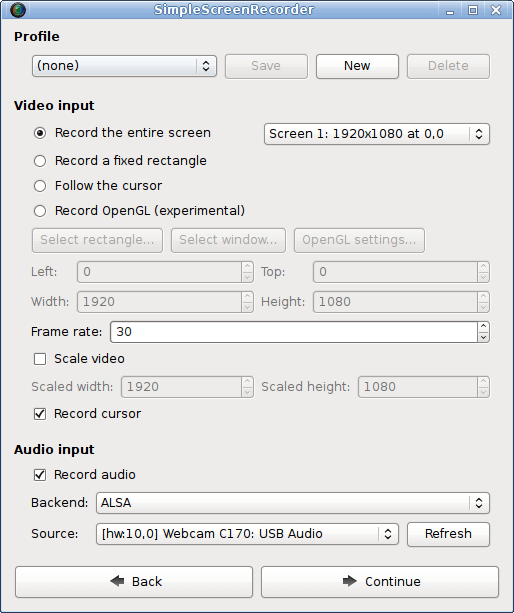
2. Jaspersoft Studio
Jaspersoft Studio is a report designer program that allows you to create simple and sophisticated reports as well with charts, tabs, tables (and everything you can expect to see in a world-class report) and export them to a wide variety of formats (with PDF perhaps being the most common).
With Q&A forums and User groups, plus several samples and examples, the community website is a great resource for help to master this versatile program.
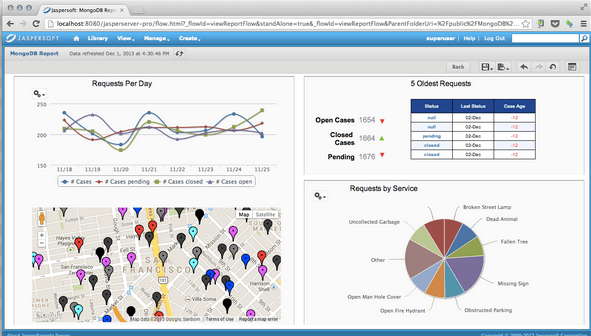
3. Visual Studio Code
Visual Studio Code is a free and open-source code editor developed by Microsoft that has reached a significant level of popularity among web and cloud developers who are also Linux users since it provides a nice programming environment out of the box that supports extensions to add functionality.
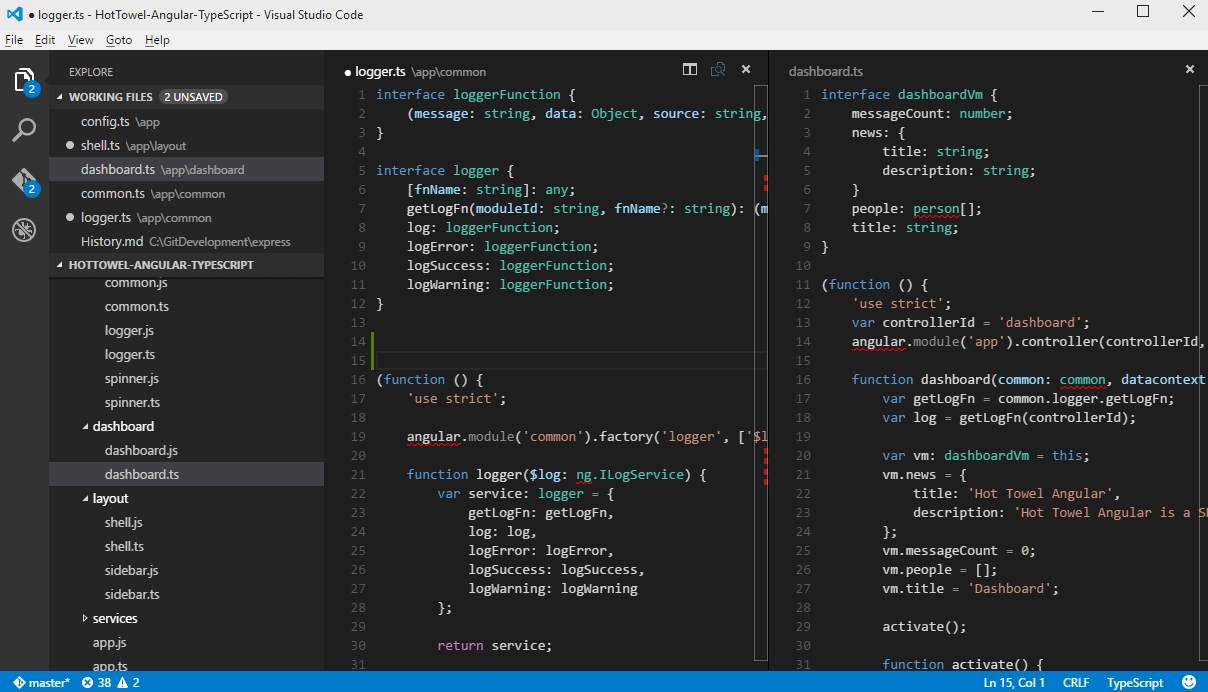
4. TuxGuitar
If you’re like me and music (especially the guitar) is one of your passions, you’ll love this TuxGuitar program, which will let you edit and play guitar tablatures like a pro.
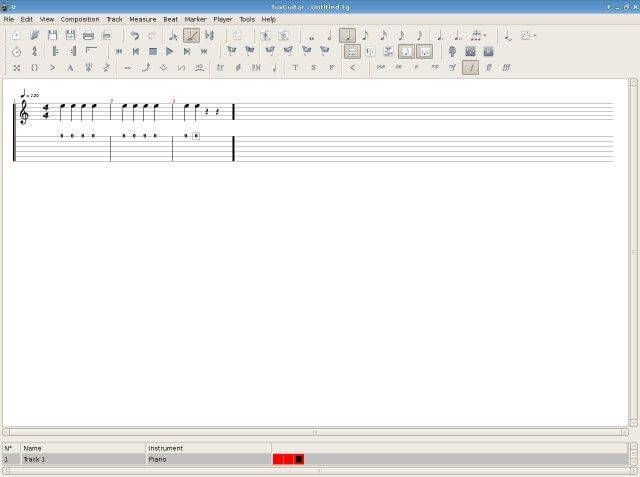
5. Jitsi
Jitsi is a free and open-source audio/video conferencing and instant messaging platform for Windows, Linux, macOS, iOS, and Android.
It provides complete encryption with support for protocols such as SIP, XMPP/Jabber, AIM/ICQ, IRC, Windows Live Messenger, Yahoo!, Google Hangouts extensions, as well as OTR, ZRTP, etc.
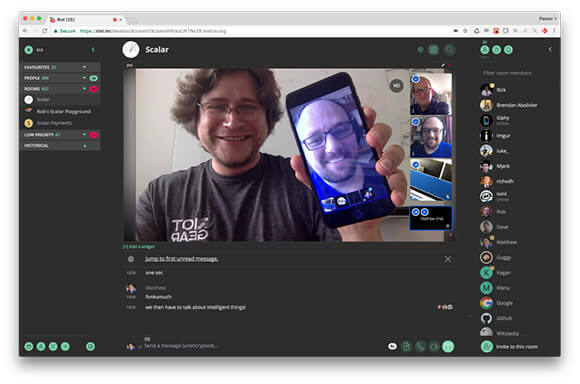
6. GCompris
GCompris is a cross-platform high-quality complete educational software collection for children aged between 2 to 10, and it comes with more than 140 entertaining activities.
That helps little children learn skills such as the identification of letters and numbers, the use of the mouse and keyboard, primary algebra training, reading time on an analog clock, vector drawing, language learning through games, and much more.
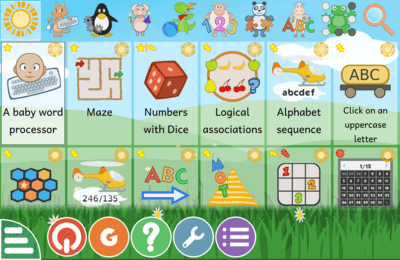
7. GIMP
GIMP (GNU Image Manipulation Program) is a multi-platform, free, and open-source photo editing software used for image manipulation and image editing, free-form drawing, transcoding between different image file formats, and more specialized tasks.
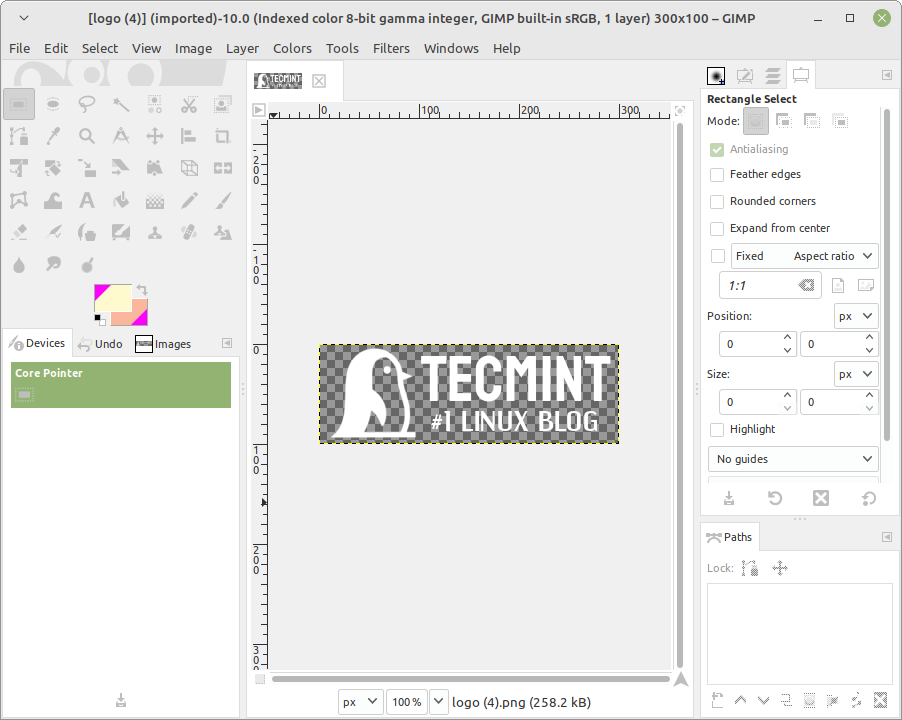
8. FreeCAD
FreeCAD is a general-purpose 3D Computer-Aided Design program fit for use in engineering and architecture. Given the fact that FreeCAD is FOSS, it is easily customizable and extensible through the use of Python scripts.
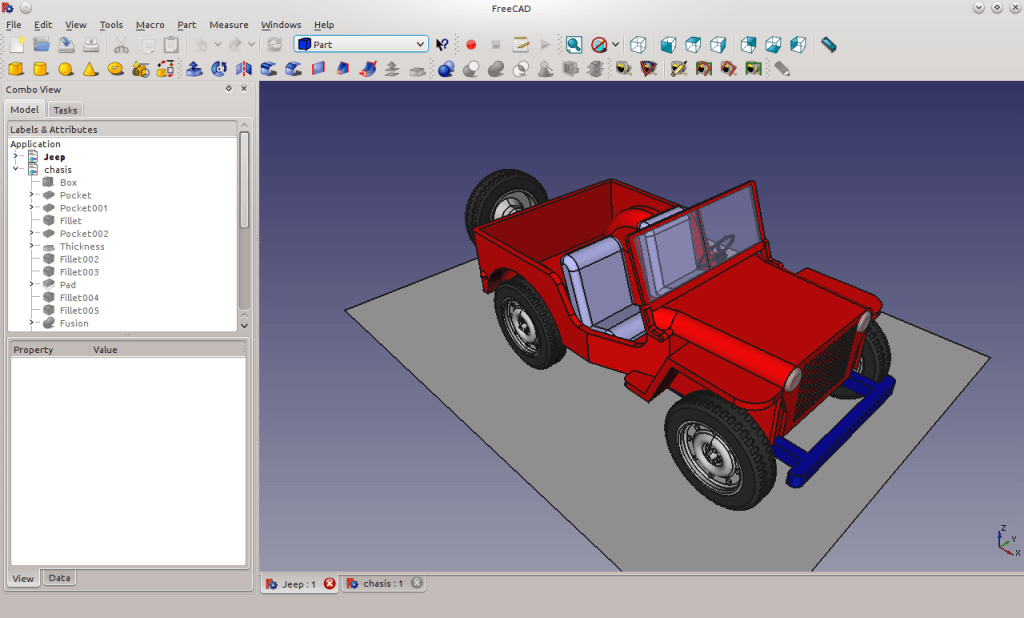
9. Owncloud
Although not a new kid on the block in any way, I chose to include OwnCloud in this review due to its importance. As an alternative to commercial Dropbox, security, and privacy are achieved without much hassle and allow you to easily set up customized cloud storage and file-sharing solution.
We already covered installation about Owncloud in-depth here: Create Personal/Private Cloud Storage Solution in Linux
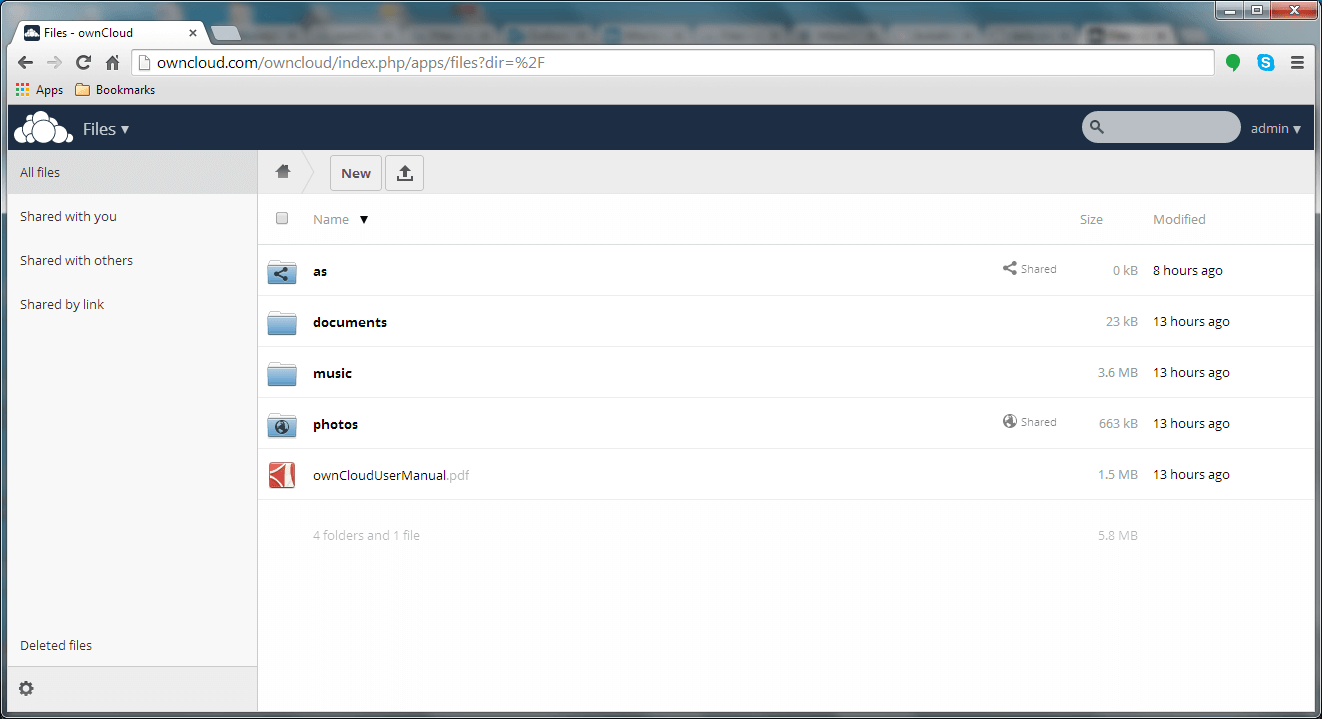
10. MediaWiki
MediaWiki is a program for creating and managing a Wikipedia-like website (in fact, Wikipedia itself is based on MediaWiki) where a community can add, remove, update, and revert entries, and authors are notified of such changes.
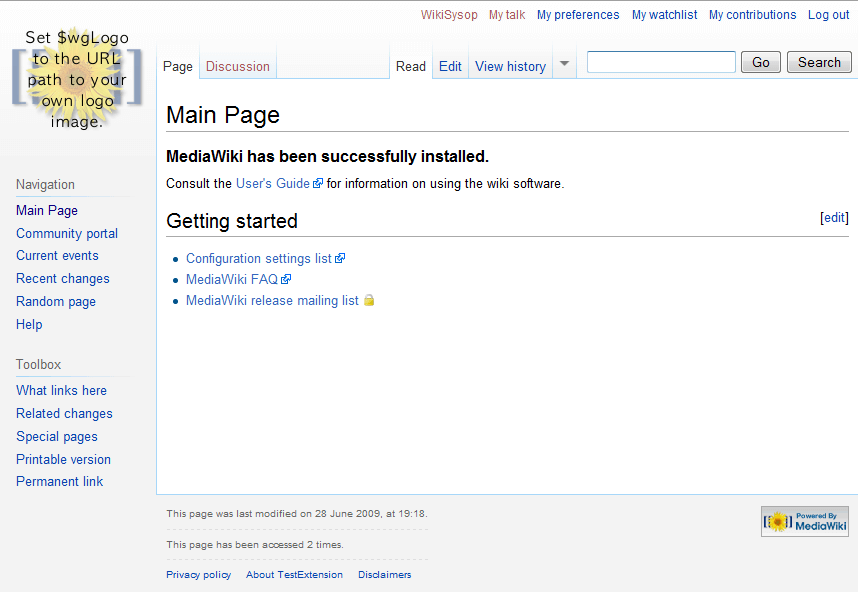
11. Bleachbit
You can think of Bleachbit as the CCleaner for Linux – but more powerful. It will not only recover disk space by deleting temporary or otherwise unnecessary files but will also improve Firefox’s performance and securely destroy unnecessary files to prevent recovery.
We already covered the installation of Bleachbit in-depth here: Disk Space Cleaner and Privacy Guard for Linux
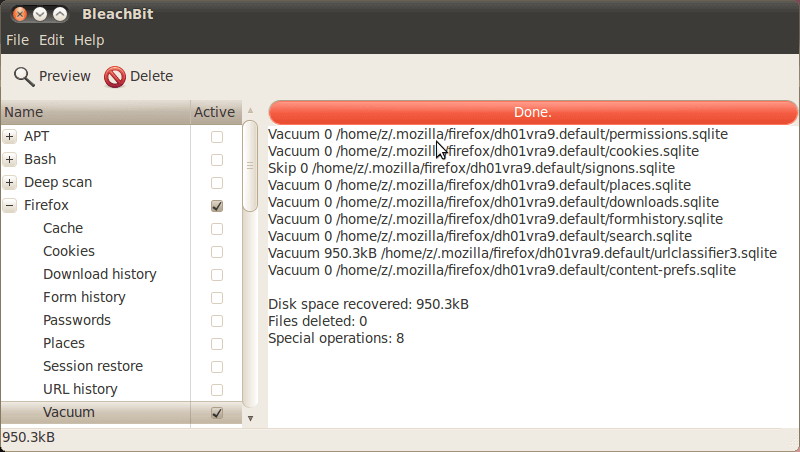
12. CodeMirror
CodeMirror is a very powerful Javascript-based text editor for the web browser. CodeMirror includes syntax highlighting for over 100 languages and a robust API. If you own a website or blog that provides programming tutorials, you will find CodeMirror to be a very useful tool.
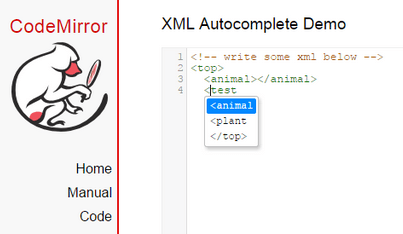
13. GNU Health
GNU Health is a free, extremely scalable Health and Hospital Information Platform, which is used by health professionals across the world to enhance the lives of the underprivileged, offering a free technique that optimizes health promotion and disease prevention.
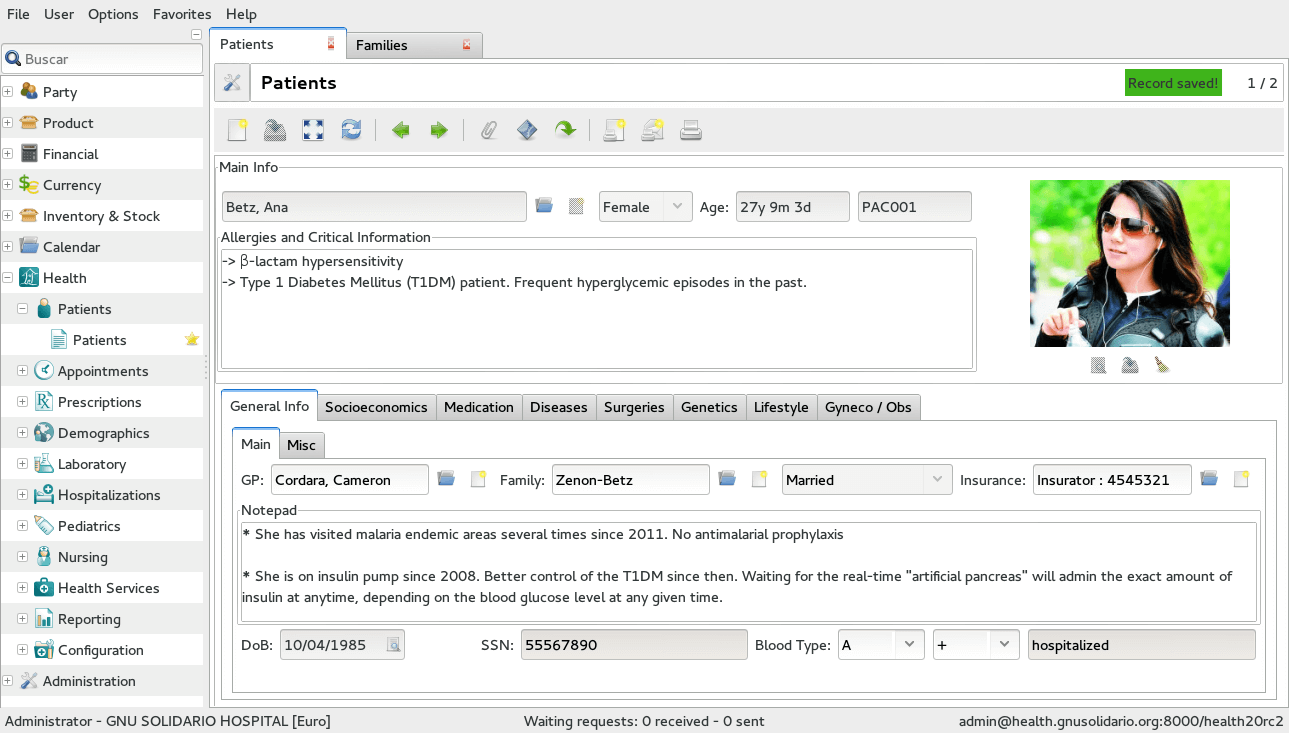
14. OCS Inventory NG
Open Computer and Software Inventory Next Generation, or OCS Inventory NG for short, is a lightweight web application that can help network and system administrators to keep track of 1) all the devices connected to the network, and 2) machine configuration and software installed in them.
The project’s website (listed below) has a fully functional demo in case you want to check it out before attempting to actually install the program. In addition, OCS Inventory NG relies on well-known technologies like Apache and MySQL / MariaDB, making it a robust program.
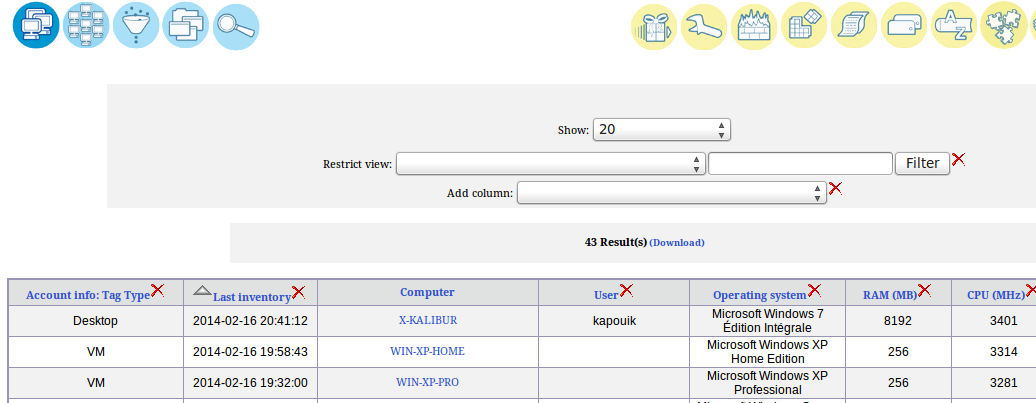
15. GLPI
Often used in conjunction with OCS Inventory NG, GLPI is a multilingual, free IT asset management software that not only provides the tools to build up a database with an inventory of your network devices but also includes a job tracking system with mail notifications.
Other distinguishing features include, but are not limited to:
- Interventions in history
- Solution approval
- Satisfaction survey
- Exporting inventory to PDF, spreadsheet, or PNG formats
We already covered the installation of the GLPI IT Asset Management tool in-depth here: Install GLPI IT and Asset Management Tool in Linux
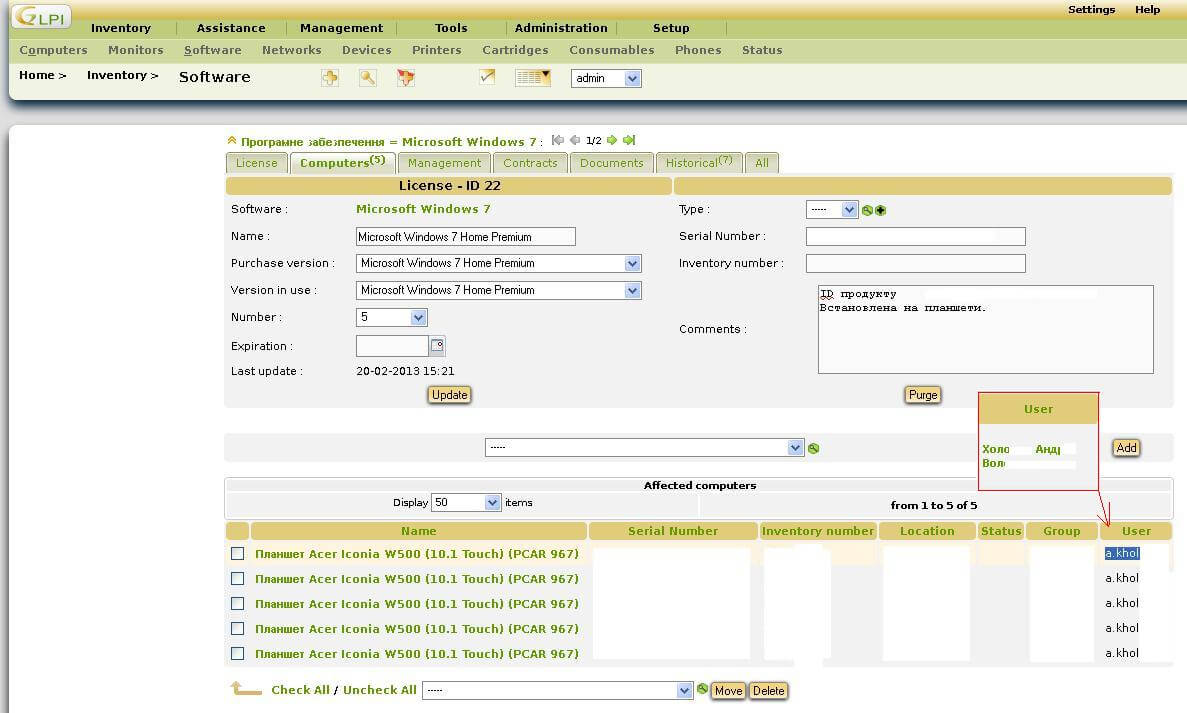
16. Ampache
With Ampache, you can set up your own home media center or online audio and video streaming application and access it from anywhere with an Internet connection.
Although it is designed as a personal application, Ampache allows for public registration if an administrator chooses to enable that feature.
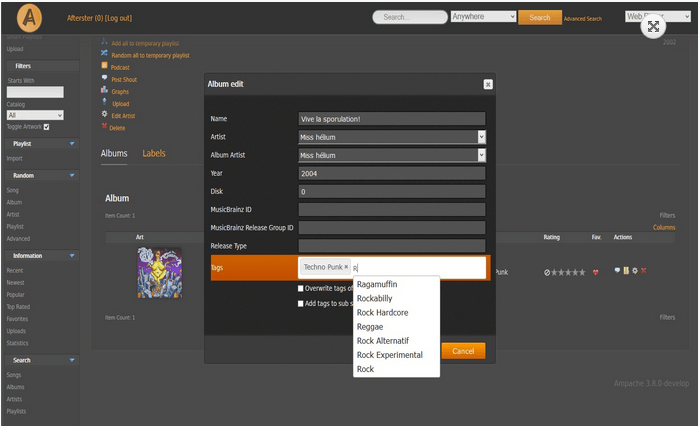
17. Master PDF Editor (Paid)
Master PDF Editor is an easy-to-use pdf editing tool for working with PDF documents that comes with powerful multi-purpose functionality.
It helps you to easily add text, create and modify pdf, add images, and encrypt files. Master PDF also allows you to merge files into one or split documents into multiple files.
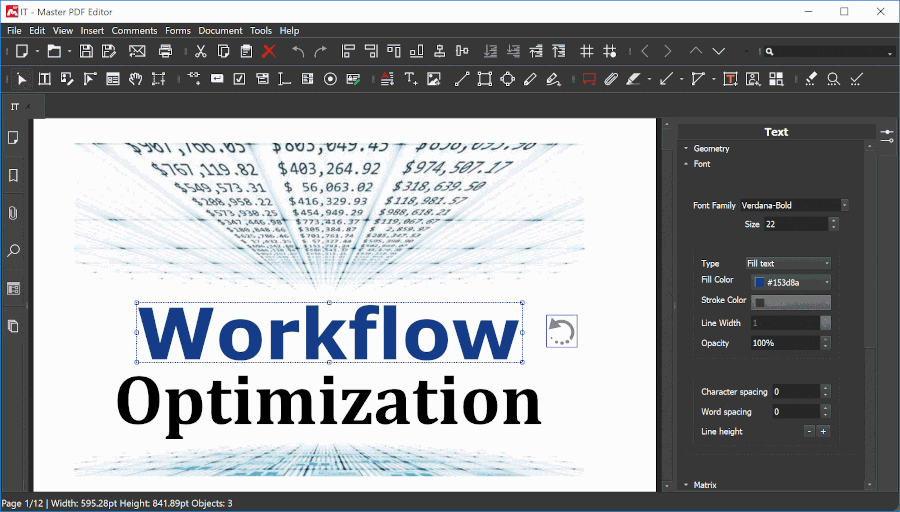
18. LibreOffice Draw
LibreOffice Draw is an application that is inbuilt into the LibreOffice suite that enables you to create anything from an easy sketch to a complex one and provides you the means to communicate with graphics and diagrams. With Draw, you can easily open and edit basic PDF files.
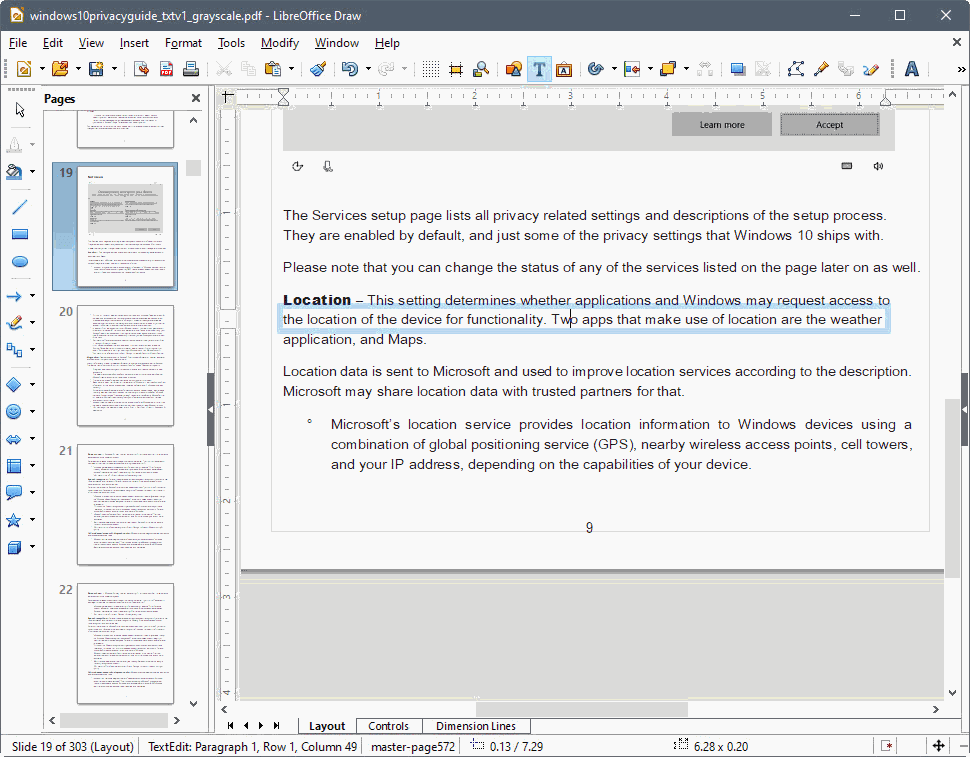
19. uniCenta oPOS
If you own a small or medium business you will undoubtedly need a Point Of Sale program. As such, uniCenta oPOS may be a lifesaver for you. It uses a MySQL / MariaDB database for data storage, and thus a single database can be used with multiple active terminals at the same time.
On top of all that, uniCenta oPOS also includes a search panel, a price-checker utility, and a tool to create printed reports.
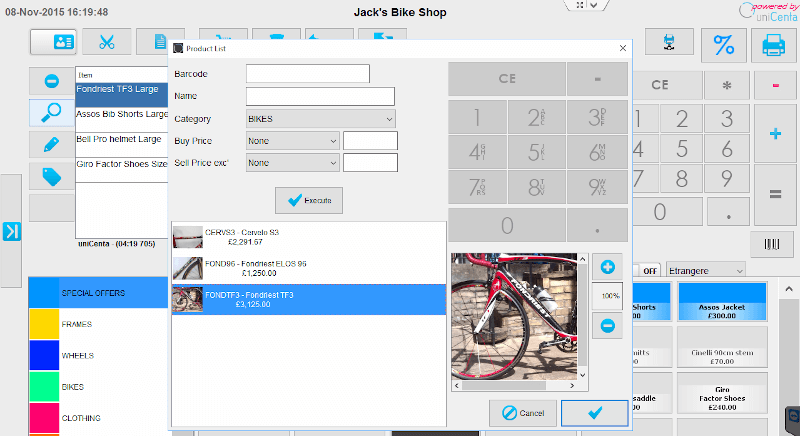
20. OpenShot
OpenShot is a FOSS video editor for Linux that can help you create “the film you have always dreamed of” (in the words of its developers) with your home videos, pictures, and music files.
It also allows you to add subtitles, and transition effects, and export the resulting video file to DVD and many other common formats.
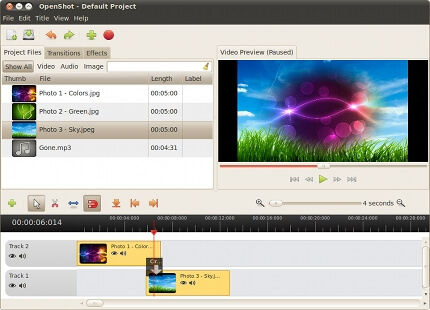
21. LAN Messenger
LAN Messenger is a multilingual (a language pack is needed) and cross-platform (works in Linux, Windows, and Mac) IM program for communication over a LAN. It provides file transfers, message logging, and event notifications – all without the need to set up a server!
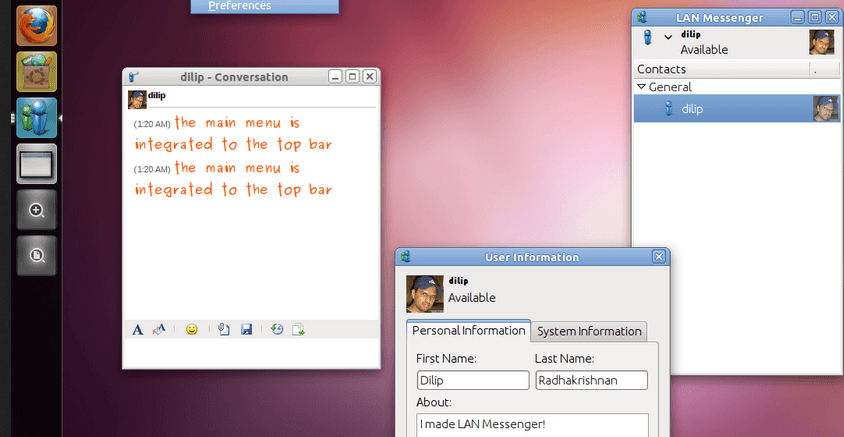
22. Cherrytree
Cherrytree is a free and open-source hierarchical note-taking program that comes with rich text formatting, syntax highlighting, and advanced customization options. Its advanced search feature enables you to search files across the file tree irrespective of their path.
It comes with keyboard shortcuts, importing and exporting notes, syncing with cloud platforms like Dropbox, and password security to keep your notes secure.
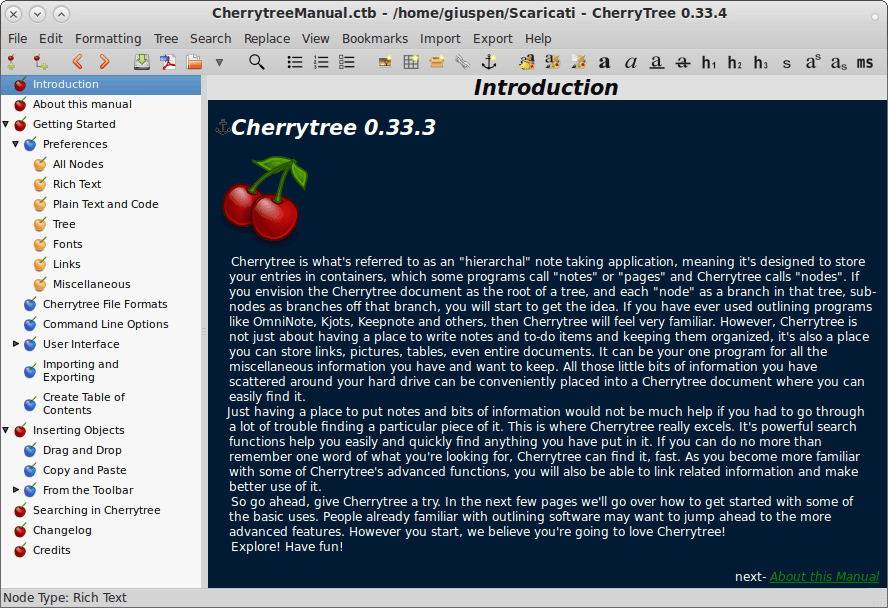
23. FlightGear
FlightGear is an awesome open-source flight simulator tool, that is used to create a knowledgeable and open flight simulator system for use in experiments or academic environments, pilot training, an industrial engineering program, for DIY-ers to chase their chosen exciting flight simulation design, and last but surely not least as a fun, practical, and demanding desktop flight simulator for Linux.

24. MuseScore
MuseScore is an open-source and free professional music notation application that is used to create, play and print beautiful sheet music using easy to use, yet powerful interface.
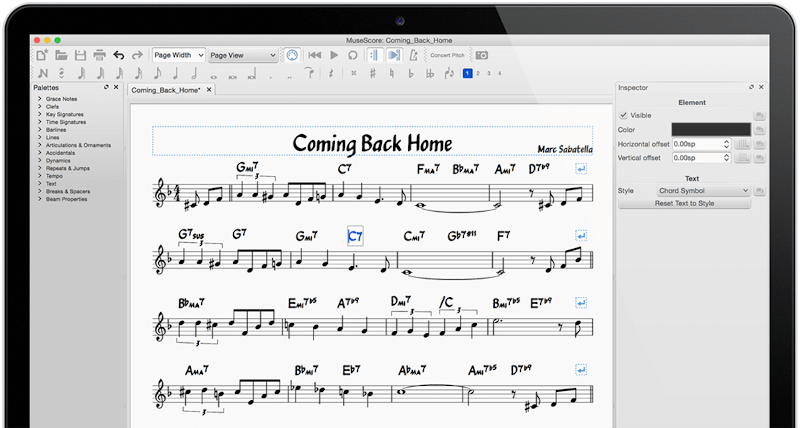
25. Tmux
Tmux is an open-source Linux terminal multiplexer that allows you to run multiple terminal sessions in a single window.
It is useful for running several programs in one terminal, detaching them (they keep running in the background), and reattaching them to a different terminal.
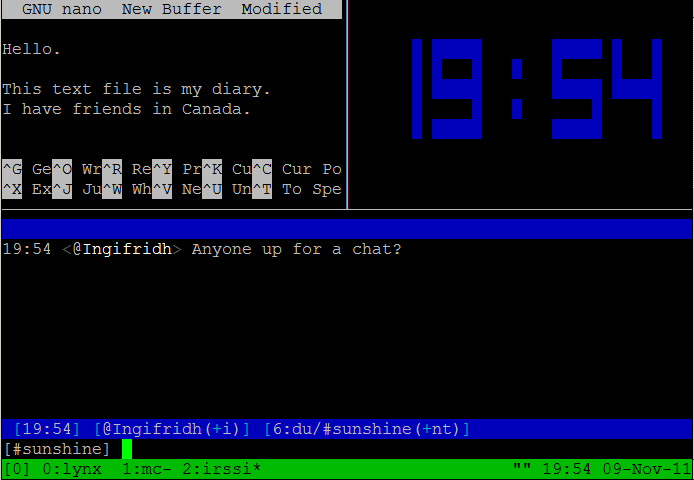
26. qBittorrent
qBittorrent is a free and open-source BitTorrent client that helps users to download and share files over the network in a decentralized manner.
It allows users to connect to peers and seeders to download and upload files efficiently by connecting to a swarm of other users who are sharing the same file. It uses the BitTorrent protocol, which breaks files into smaller parts and allows users to download those parts from multiple sources simultaneously.
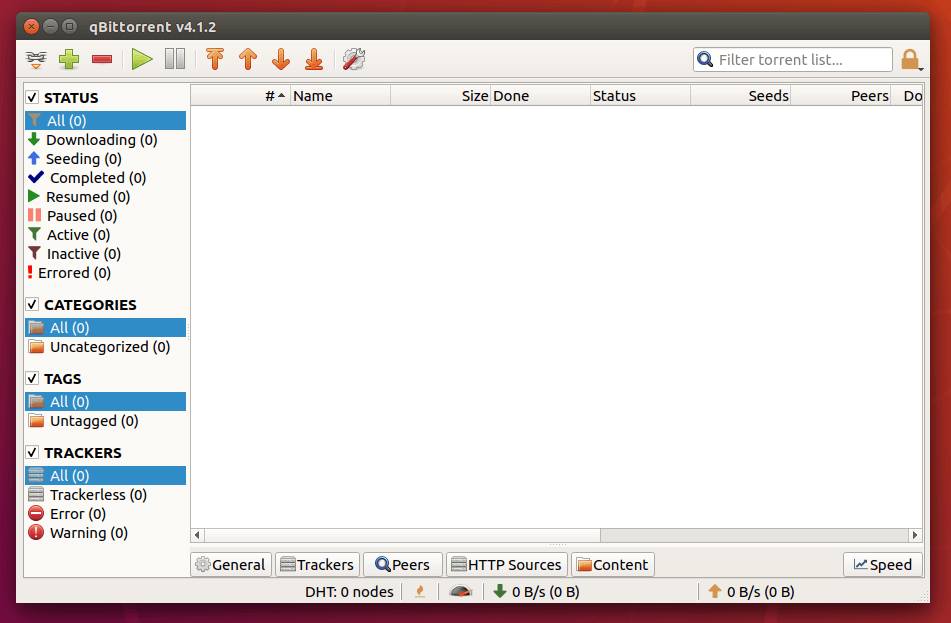
27. NextCloud
Described as “a safe home for all your data”, NextCloud was started as a separate project by one of its ownCloud’s first collaborators.
Although it raised a few sparks between him and the ownCloud community, NextCloud seems to be here to stay and compete with ownCloud as a private cloud solution to access and share your files, calendars, contacts, and office documents.
Using dozens of third-party apps available on the official App Store, you can equip your Nexcloud instance with new features and turn it into a powerful collaborative environment that cares with respect to your personal data.
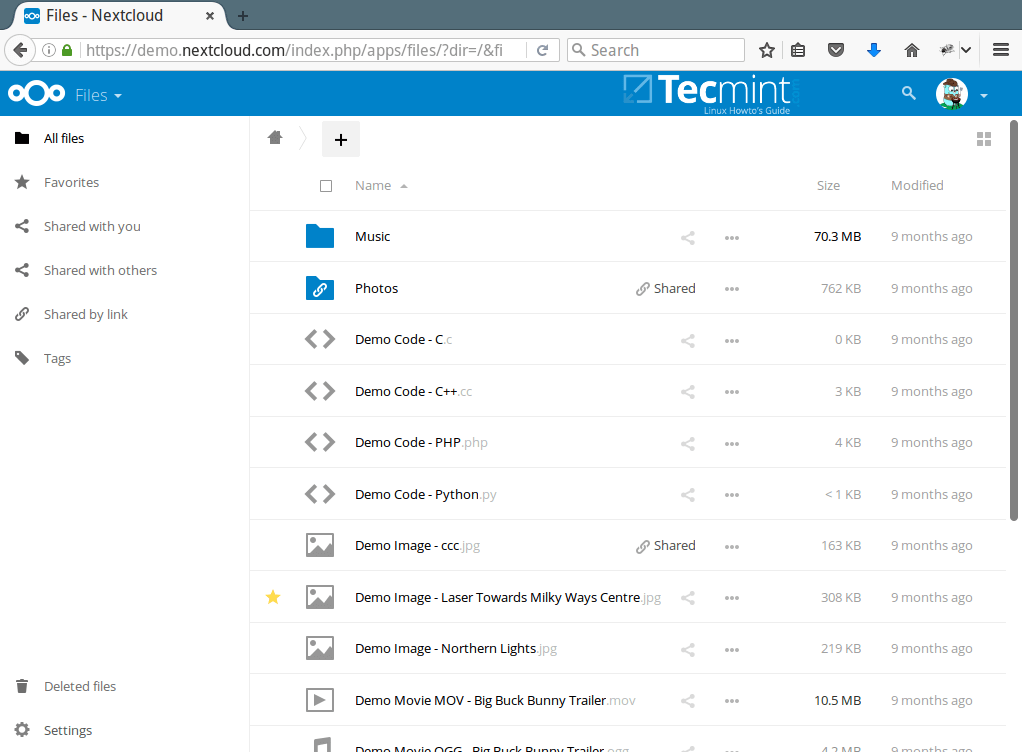
28. Celestia
Because even system administrators and developers need a little distraction, you can use Celestia (a free 3D astronomy program) to navigate the universe.
Celestia serves as a 3D planetarium that seamlessly simulates various celestial objects whose position and movement are calculated accurately in real-time. It also comes with a large database of stars, galaxies, planets, asteroids, comets, and other celestial bodies.
As opposed to other planetarium software, Celestia allows you to travel throughout the solar system and the galaxy, not just the surface of the Earth. To infinity and beyond!

29. FreeRDP
If your system administration tasks include managing Windows servers via Remote Desktop Protocol (RDP), FreeRDP is a tool that you will want to try out.
It is described by its developers as an RDP client for Windows Terminal Services. The project is hosted on GitHub and released under the Apache license, so you are welcome to collaborate with it if you wish.
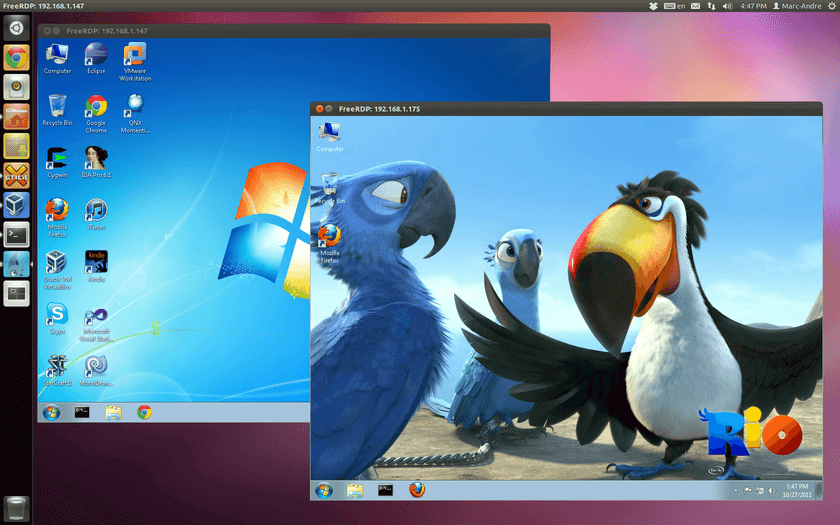
30. Flyspray
Again, I may be a little biased on this one. If you are searching for a bug-tracking and project management solution, don’t look any further Flyspray, a web-based tool powered by Apache has exactly what you need. And don’t just take my word for it: even ArchLinux uses Flyspray for bug-tracking.
Flyspray is a lightweight bug-tracking system written in PHP that runs on any OS and focuses on a very intuitive design allowing you to handle multiple projects at once.
It supports MySQL or PostgreSQL as database servers and provides voting functionality, email notifications (requires a separate mail server to be installed and configured), and optional Single-Sign-On (SSO) using a Facebook or Google account.
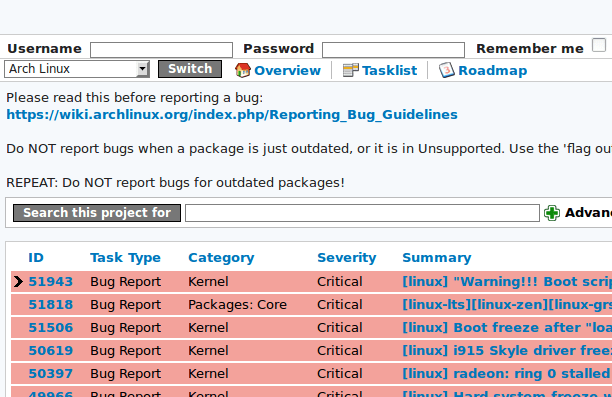
31. GNUCash
If you have been using a spreadsheet to keep track of your personal, family, or business finances, it may be time to try a more suitable solution such as GNUCash.
This FOSS accounting software allows you to keep an eye on your bank accounts, expenses, and income and to create custom, complete reports with this data. Its user-friendly interface is a plus to the solid accounting principles GNUCash uses under the hood.
The official website includes an exhaustive FAQ section, the application Manual, and a Tutorial guide. With these materials, learning how to use GNUCash will be a play in the park. On top of that, you can subscribe to the mailing lists in case you need help or run into any problems with GNUCash.
Like many other open-source projects, GnuCash is entirely developed, maintained, and translated entirely by volunteers and enthusiasts.
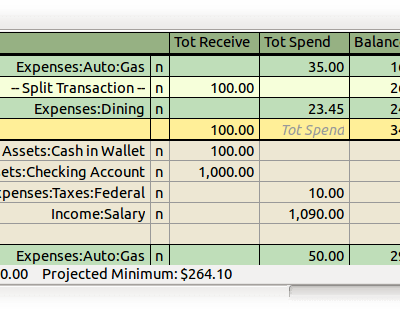
31. LogicalDOC
Both available as Enterprise (paid) and Community editions, LogicalDOC is an award-winning, web-based Document Management System (DMS). As such, it aims to provide a high-quality method for sharing business documents and records in a low-cost and secure way.
Additionally, LogicalDOC allows you to control access to these resources via security roles, and to easily track changes through version control. LogicalDOC can be installed both on a single computer in standalone mode, on a dedicated server as a shared service, or as a Software as a Service (SaaS) solution.
LogicalDOC comes with features for content processing and information management that are more suitable for enterprises and businesses but it’s also great for personal use.
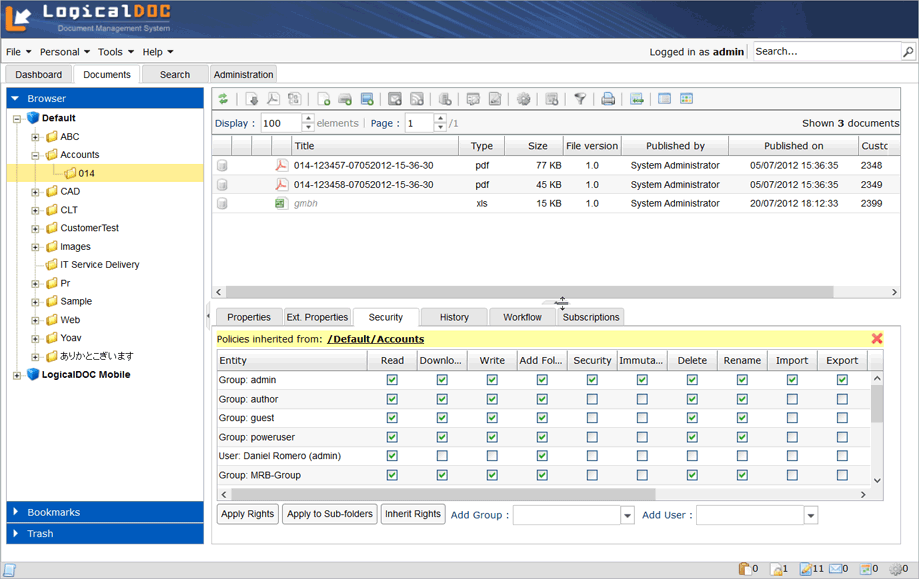
33. Blender
If you are into game development, video editing, or 3D modeling, I am sure you must have already heard about this tool. If you are considering any of these activities either as a hobby or a career change and haven’t heard about Blender, it is definitely time to check it out.
As a FOSS solution, it does not come short when compared to commercial tools. On top of it, Blender is cross-platform which means you can not only run it on Linux but also on macOS and Windows.
Among the standard Blender features, you can find rendering, 3D modeling, digital sculpting, video editing, and simulation tools.

34. DVDStyler
DVDStyler is a cross-platform, FOSS DVD authoring tool that allows you to create nice-looking and professional DVDs with your video and image files.
As such, DVDStyler allows you to create your own interactive menus or choose from the built-in ones, add subtitle and audio files, and use video files in different formats. Additionally, you can create photo slideshows and place graphic objects like buttons, text, images, and so on.
In addition, this awesome tool integrates with your DVD burner to burn the disk from within the same application.
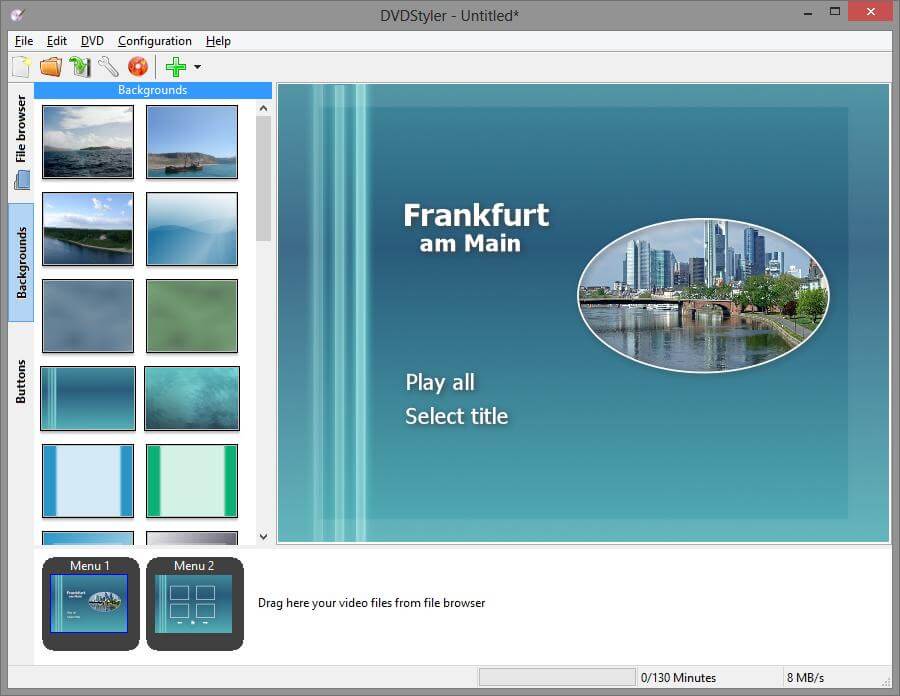
35. OSQuery
As its name suggests, OSQuery provides access to real-time system information in the form of tables and events that can be queried using SQL-like syntax via an interactive query console.
With osquery, you can explore your system to perform intrusion detection, diagnose a problem, or just produce a report of its operation – all at your fingertips using a single tool.
If you have at least a basic understanding of SQL, getting details about the operating system using the built-in tables in OSQuery will be a piece of cake.
OSQuery runs flawlessly on Windows, macOS, CentOS, and all other Linux OS released since 2011 and requires no dependencies.

Need yet another reason to convince you to give OSQuery a try? It was developed and maintained by the folks at Facebook.
36. KeePass
I have to deal with so many programs, websites, and services that I often forget my passwords. There is no doubt that this also happens to other Linux users, so here is the solution – KeePass. It’s a free open-source password manager that allows you to manage and keep your passwords in a secure way.
KeePass stores all of your passwords in a single database locked with a master key. That’s why you need to remember one single master key to access the database.
All passwords are encrypted using the most secure encryption algorithms. In fact, KeePass is compatible with the Advanced Encryption Standard (AES, Rijndael) and the Twofish algorithm.
Alternatively, KeePass allows you to use key files instead of master keys. You just need to always have the key file with you. For example, you can carry it on a floppy disk or USB stick.
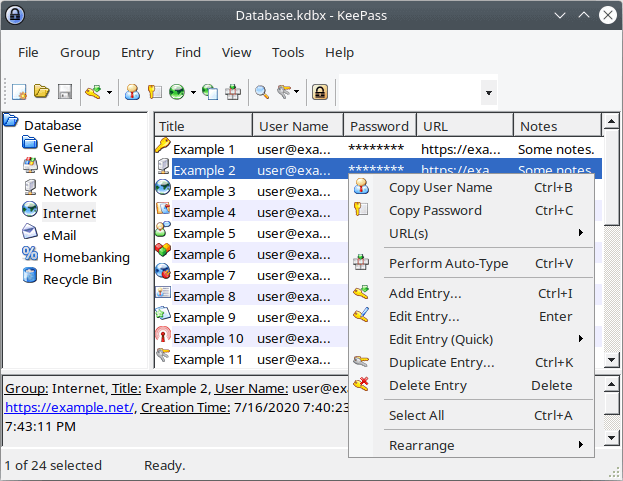
37. PDF Mix Tool
I don’t often edit PDF files but when I do, I usually use PDF Mix Tool, which is a simple and lightweight open-source program that makes it possible to perform common PDF editing operations, such as file merging and page rotation.
Apart from that, you can also use PDF Mix Tool to generate booklets, delete and add pages to a PDF file, extract pages and even edit the PDF document information.
This tool is good for basic editing operations. If you need a more complex and powerful program, take a look at the best pdf editors for Linux.
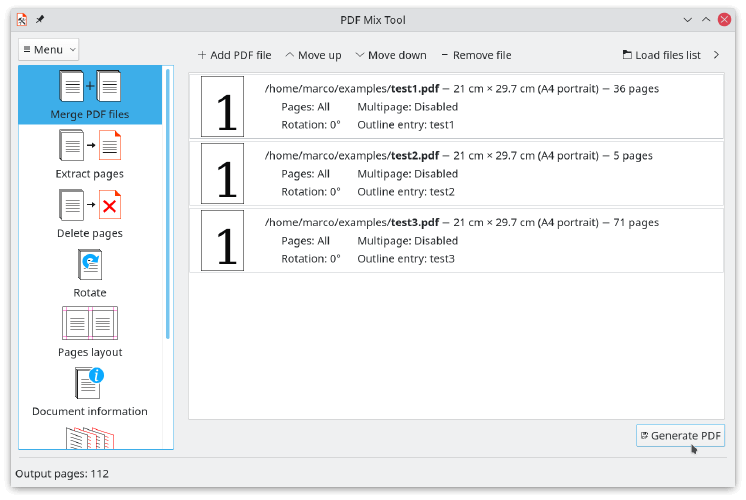
38. Mailspring
When it comes to email management, one of my favorite tools is Mailspring, which is an open-source and cross-platform email client that allows you to create a single inbox for all your email accounts.
Mailspring is compatible with all popular email providers, including Gmail, Outlook, iCloud, Office 365, Yahoo!, etc., and supports IMAP/SMTP.
The Mailspring user interface is visually pleasing and there are a few beautiful themes. It also comes with a signature editor that allows you to create custom signatures, even with images and links to social media, which looks great.
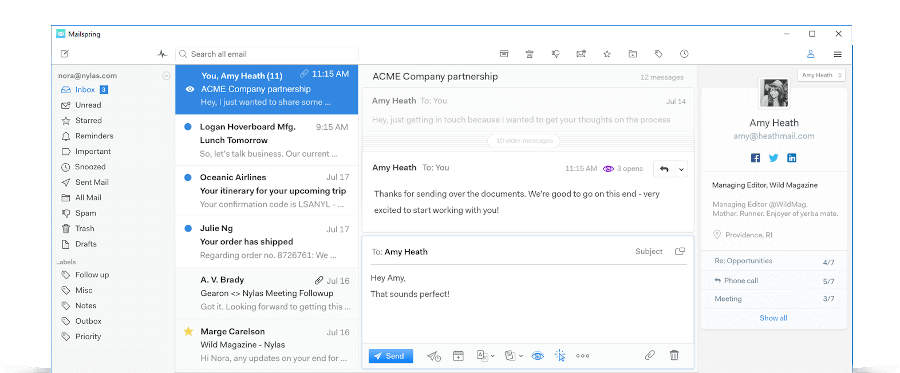
39. OpenTodoList
If you work on several projects and have a lot of tasks to do at a time, you definitely need to try OpenTodoList, which is a simple note-taking application that allows you to stay organized.
With this tool, your information is organized in libraries. A library can contain to-do lists, notes, and images that are stored locally.
More importantly, you can synchronize your information with NextCloud, ownCloud, other WebDAV services, or any third-party synchronization tool of your choice. OpenTodoList lets you keep track of your tasks and enhance your productivity in a simple way.
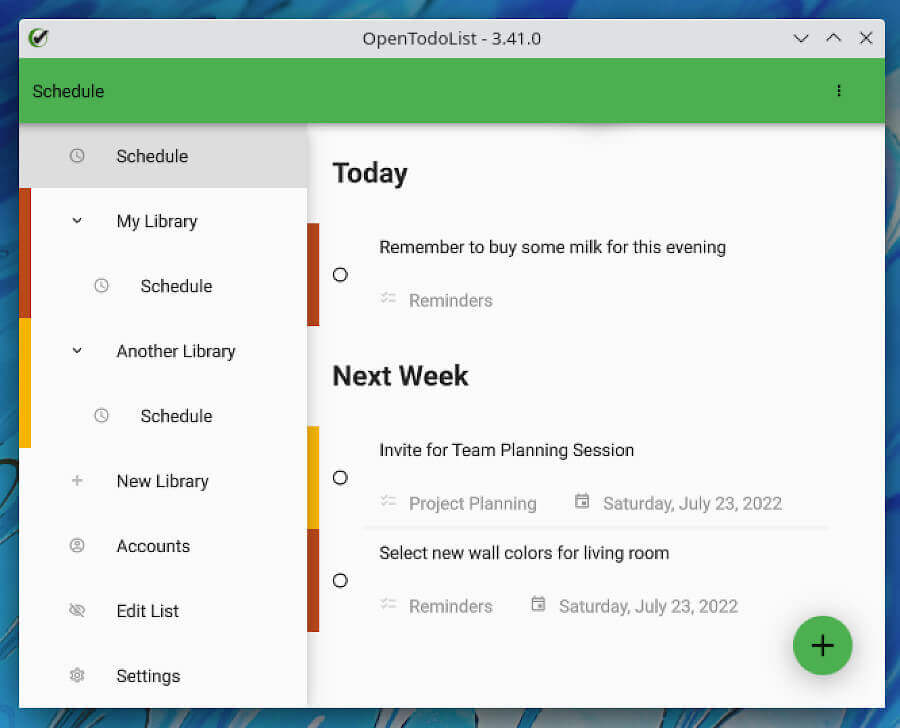
40. ONLYOFFICE
Many Linux users have been lacking a decent Microsoft Office alternative for years. From my point of view, one of the best replacements for the MS Office suite is ONLYOFFICE, an open-source project that revolves around office software and productivity tools.
ONLYOFFICE offers a self-hosted office suite called Docs and a free desktop editor for Linux, Windows, and macOS. Both online and desktop editors are based on the same engine and allow you to create and collaborate on documents, presentations, spreadsheets, and fillable forms in real-time.
The ONLYOFFICE suite is fully compatible with DOCX, XLXS, and PPTX files and also makes it possible to open and view PDF and DjVu files. Conversion to DOCX is available, too.
ONLYOFFICE comes with integration apps for the most popular file-sharing and document management platforms, so you can embed the online editors to enable document editing and real-time co-authoring within Nextcloud, ownCloud, Moodle, WordPress, Seafile, etc.
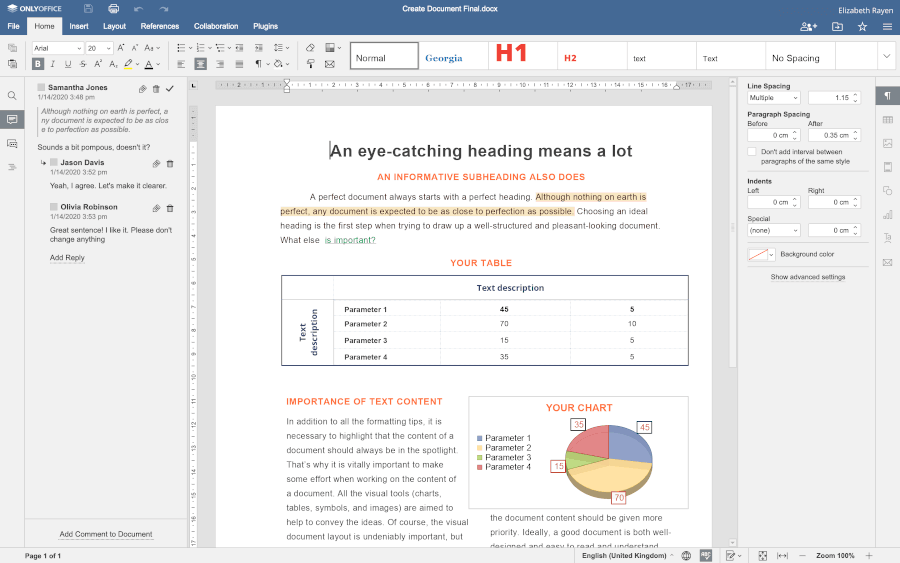
Summary
In this article, I have described free and open-source applications that I have found during the year 2023, and hope that it sparks your interest in one or more of them.
Would you like us to cover any of them in greater detail on this site? Have you found another great FOSS application that you would like to share with the rest of the community? Just let us know using the comment form below. Questions, comments, and suggestions are also welcome.

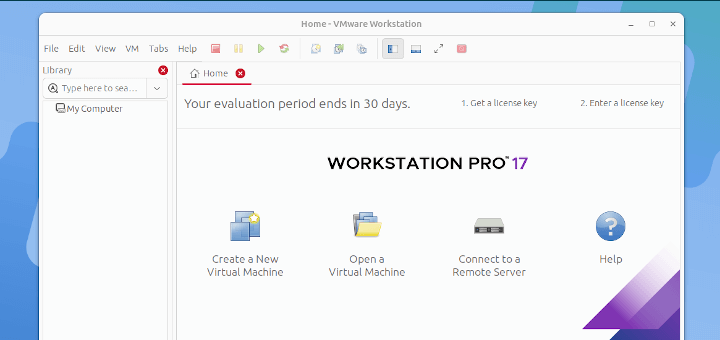
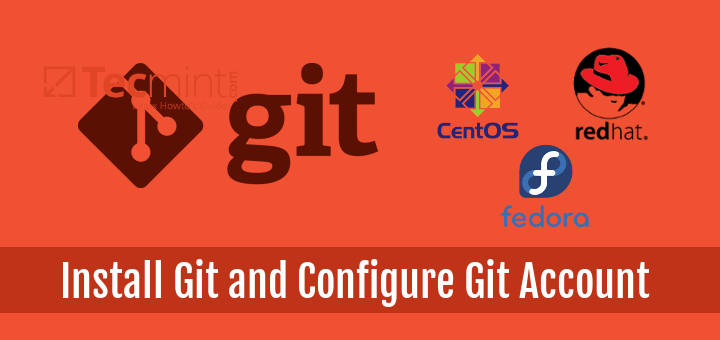

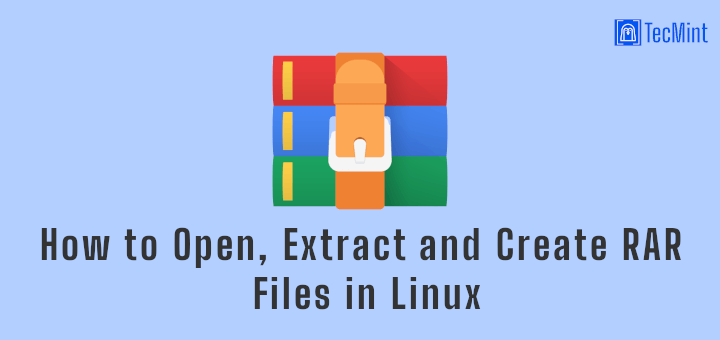
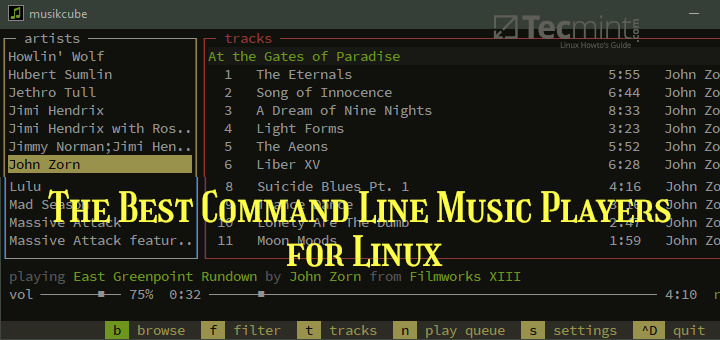
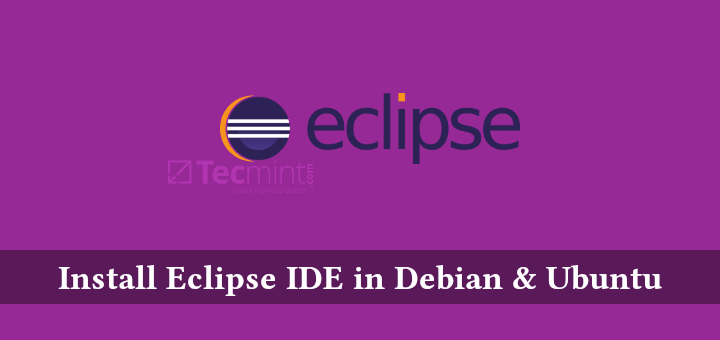
Amazing I don’t use even one of those must-have applications, and my computer still works for me!
I have added some of the above applications according to my requirement thank you.
Need yet another reason to convince you to give OSQuery a try? It was developed and is maintained by the folks at Facebook.” AFAIC, that is hardly a recommendation. In fact, it is a very strong reason NOT to use it.
Hi again,
Just a few comments. Nextcloud can do all the same as the LogicalDoc, plus a lot more.
OSQuery was a new app for me. I looked for more information about it and found Lynis at that point (<- available from a standard repo in several distros). That app (or script) doesn't have a fancy UI, but it might be useful for somebody else.
Nice article, but what you would think about replacing the Visual Studio Code link with a real open-source version of it that doesn’t track the users? -> (https://vscodium.com/)
Otherways I could suggest GIMP (https://www.gimp.org/) for your list.
If only you could turn the telemetry off (even though it’s just telemetry and nothing more)
Oh wait, you can :)
Really very helpful, Thank you for sharing this information.
Can Linux run on a 2 GB ram computer?
Yes, it’s perfectly possible. You just have to use a lightweight distro.
I recommend MX Linux because it’s not only friendly to low-spec computers but also developed to be easy to use, even for beginners.
I have a small laptop/tablet with 2GB of ram and an atom cpu running mx linux fine. Just keep in mind that some tasks may be limited with low ram, like opening multiple apps at once, or having several browser tabs.
P.S: If you’re more tech savvy, I recommend using the 32-bit versions of all apps you can, especially the browser, because it eats much less ram. To give you a real example, on the above-mentioned computer, I can only work with about 3 to 5 tabs in 64-bit Firefox without the system becoming sluggish, but in 32-bit Firefox, I can work with more than 10 tabs!
Hello, I’ve tried to install and run the Celestia app but I can’t seem to get it running. What should I do? I’m on Ubuntu 18.04
Thank you for this valuable list! Much needed!
Decent list, although some of these look like they are from 1990. It might be cool to have a list of some newer programs.